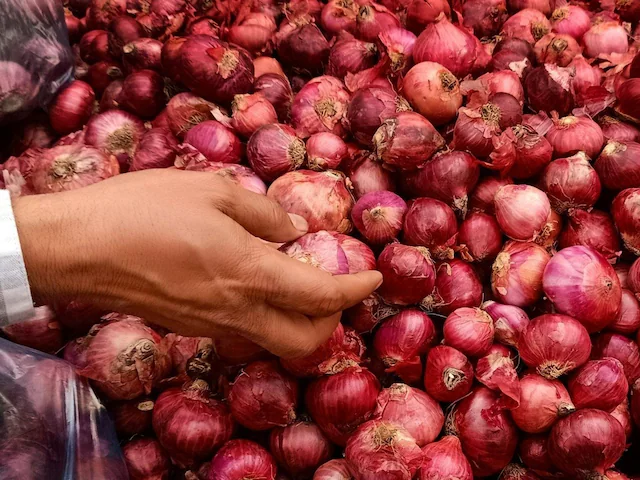The Indian government has permitted the export of 50,000 tonnes to Bangladesh, 550 tonnes to Bhutan, 3,000 tonnes to Bahrain, 1,200 tonnes to Mauritius, and 14,400 tonnes to the UAE, prioritizing nations reliant on Indian onion supplies, especially neighboring countries
In response to diplomatic appeals, India has granted onion exports to a handful of countries, despite maintaining its ban on overseas shipments due to consecutive years of projected lower output. The export embargo, implemented in December 2023, arose amidst a domestic scarcity and soaring prices, which surged over 100% to ₹100 per kilo in certain urban areas despite a 40% export tax.
State-backed agencies NAFED and NCCF are tasked with directly purchasing from farmers, ensuring prompt payments through direct benefit transfers
The Indian government has permitted the export of 50,000 tonnes to Bangladesh, 550 tonnes to Bhutan, 3,000 tonnes to Bahrain, 1,200 tonnes to Mauritius, and 14,400 tonnes to the UAE, prioritizing nations reliant on Indian onion supplies, especially neighboring countries.
Official projections indicate a decline in rabi onion production to 19.3 million tonnes for 2023-24, down by 18% from the previous year’s 23.6 million tonnes. Rabi onions, constituting 72-75% of India’s annual production, play a vital role in sustaining year-round availability due to their superior shelf life compared to summer onions.
Recognizing the significance of onions in Indian cuisine and the commodity’s volatile nature, the government has initiated procurement from farmers to amass a 500,000-tonne emergency reserve for 2024-25. State-backed agencies NAFED and NCCF are tasked with directly purchasing from farmers, ensuring prompt payments through direct benefit transfers.
In the previous year, these agencies procured approximately 600,000 tonnes, intervening in retail markets to stabilize prices at ₹25 per kilo during a supply shortage. Presently, the reserve stands at a meager 20,000 tonnes, necessitating replenishment to mitigate future price fluctuations.
***********************************************************************
Readers



